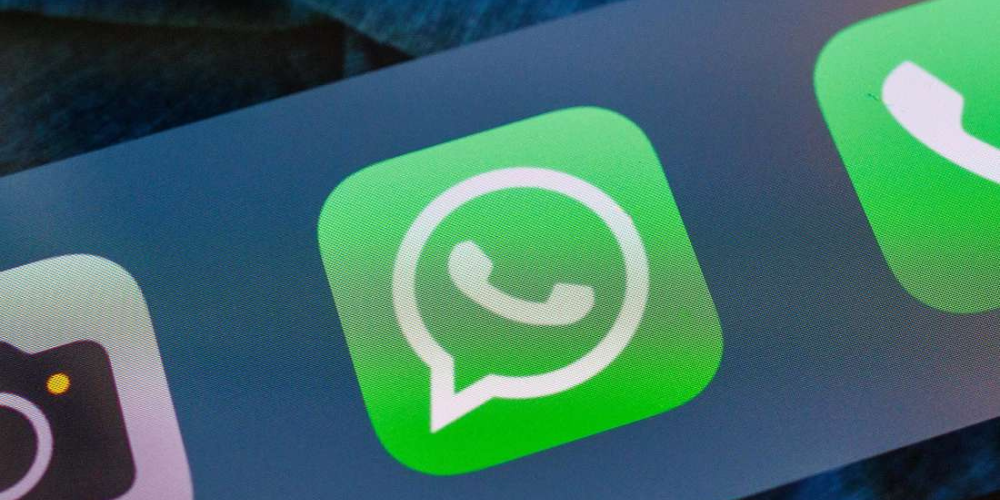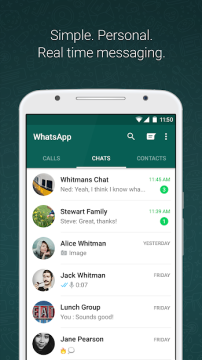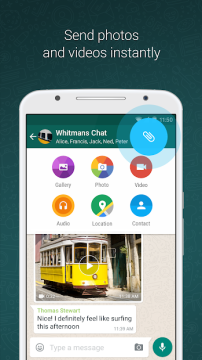WhatsApp Messenger review
An Overview of WhatsApp Messenger
Regularly praised as a transformative application for messaging, WhatsApp Messenger has been reshaping our interactions with loved ones and peers worldwide. Debuted in 2009, WhatsApp is a no-cost, multipurpose messaging and voice-over IP service under the ownership of Facebook, Inc. The platform allows individuals to exchange written messages and vocal notes, engage in audio and visual calls, and distribute pictures, files, and geographic positions, among other things. Boasting an impressive global user base exceeding two billion, WhatsApp has established itself as a pivotal platform in online communication.
The beauty of WhatsApp lies in its simplicity. No fancy gimmicks: just a clear, intuitive interface that allows even tech-novices to get on board easily. Plus, it’s easy to use regardless of what device you’re on, be it Android, iPhone or Web/Desktop version. However, the app has its share of downsides too, which we need to consider before hailing it as the perfect communication app.
Key Features and Drawbacks of WhatsApp Messenger
WhatsApp has undoubtedly made communication faster and simpler. Features like end-to-end encryption ensure that the messages are secure, representing a major positive aspect for users concerned with privacy. The Group Chat feature lets multiple people communicate in real-time. Like Instagram and Snapchat stories, the Status Update feature lets users share text, photos, videos, and GIF updates that disappear after 24 hours.
But with the good comes the bad. One significant drawback of WhatsApp lies in its backup policy: while chats are end-to-end encrypted, backups are not. This means if a backup copy is obtained by someone, all the messages can be read. Another disadvantage is that if a user loses their phone or switches to another device without proper backup, chat histories are lost. Also, with the recent update of terms and privacy policy, concerns regarding personal data sharing with its parent company, Facebook, have been raised, sobbing the trust many users had in the platform.

Little-Known Facts About The Messenger
- WhatsApp was founded by two former Yahoo employees, Brian Acton and Jan Koum, in 2009. Despite its immense success now, it was initially a startup that nearly went unnoticed.
- WhatsApp is used in over 180 countries and supports over 60 languages. It has over 2 billion active users, making it one of the most popular messaging apps worldwide.
- The platform sends an estimated 100 billion messages per day. It's particularly popular among young people, and more than 64% of mobile internet users aged 18 to 34 use it.
- WhatsApp's features have evolved tremendously over the years. Initially, the app was designed to show 'status updates', but it quickly expanded its features to include messages, voice calls, video calls, and document sharing.
- Despite its extraordinary success and high user base, WhatsApp maintains a relatively small team. At the time of its acquisition by Facebook in 2014, it had only 55 employees. This was widely noted as a testament to the power of a small, focused team.
User Impressions of WhatsApp Messenger
Despite its drawbacks, WhatsApp's overall user impression remains overwhelmingly positive. Its ease of use, lack of advertisements, and strong feature set consistently make it the top chat platform. Users love that they can interact quickly with individuals and groups, send and read messages easily, share interesting content, and keep in touch with people worldwide. As a testament to this, it is the most used messaging app globally as of 2021, with users spanning all age groups.
However, increasing number of users are showing privacy concerns, especially after recent policy updates. WhatsApp must address these concerns if it wants to continue its leadership in the messaging app market and maintain its trustworthiness among users.
In the final analysis, WhatsApp Messenger has become an irreplaceable part of our daily communication with its user-friendly nature and high utility. However, user impressions indicate that data privacy and backup improvements could enhance its performance and reliability.
Pros

- It is free
- The application is easy to use
- The application is available for all types of devices
- It has low battery usage
Cons

- The messages are not encrypted on the sender's device
- The application is not available for Windows Phone
- It has also been criticized for sharing data in the background with Facebook even when not using the platform
Screenshots



Leave a comment
Your comment is awaiting moderation. We save your draft here
0 Comments